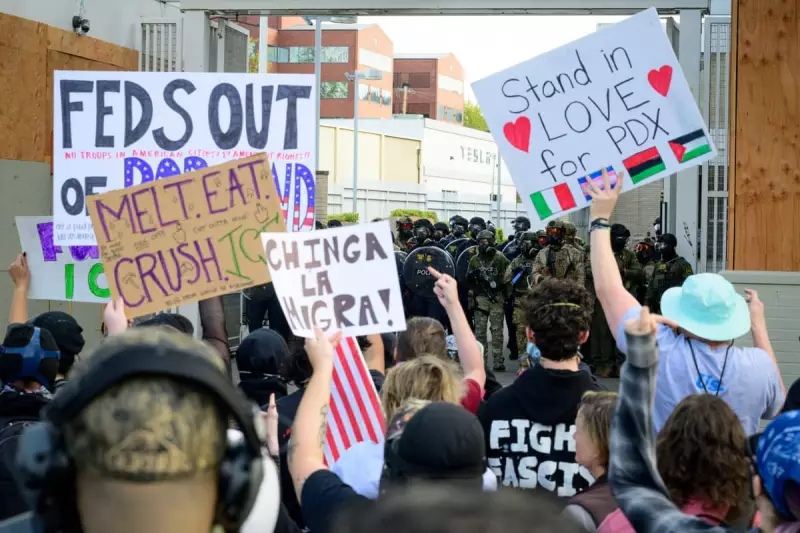
A dramatic legal confrontation has erupted over former President Donald Trump's controversial decision to deploy National Guard troops to Portland, setting the stage for a constitutional showdown that could redefine the boundaries of presidential power.
The Heart of the Legal Battle
The lawsuit, filed by civil rights groups and Portland residents, alleges that Trump's deployment of National Guard personnel to the Oregon city represented an unprecedented overreach of federal authority. The case centres on whether a president can unilaterally deploy military forces within US states against the wishes of local authorities.
Constitutional Questions at Stake
Legal experts describe the case as potentially landmark, touching upon fundamental questions about:
- The Insurrection Act: How broadly can presidents interpret this centuries-old law?
- State vs Federal Authority: When can federal forces intervene in state matters?
- Civil Liberties: What protections do citizens have against military deployment?
Portland's Turbulent Context
The deployment occurred during a period of significant civil unrest in Portland, where prolonged protests had created ongoing tensions between local authorities and federal officials. The arrival of National Guard troops escalated an already volatile situation, drawing condemnation from Oregon's state leadership.
Governor Kate Brown and Portland's mayor had repeatedly expressed opposition to federal intervention, arguing that local law enforcement was capable of handling the situation without military support.
Broader Implications for American Democracy
This legal challenge extends far beyond Portland's city limits. The outcome could establish crucial precedents affecting:
- Future Presidential Actions: How much discretion do presidents have in domestic military deployments?
- State Sovereignty: What protections do states have against unwanted federal military intervention?
- Civil-Military Relations: What role should the military play in domestic law enforcement?
The Plaintiffs' Perspective
Those bringing the lawsuit argue that the deployment created a chilling effect on free speech and assembly rights. They contend that the presence of military personnel fundamentally altered the nature of protest policing and created an atmosphere of intimidation.
"When you see military vehicles and armed soldiers on American streets, it changes the entire dynamic of civic engagement," one plaintiff stated in court documents.
Looking Forward
As the case moves through the legal system, it represents more than just a dispute about a single deployment. It embodies the ongoing national conversation about the proper balance between security and liberty, federal power and states' rights, and presidential authority versus constitutional constraints.
The resolution of this case could shape American governance for generations, determining how much power future presidents wield in deploying military force within the United States.






